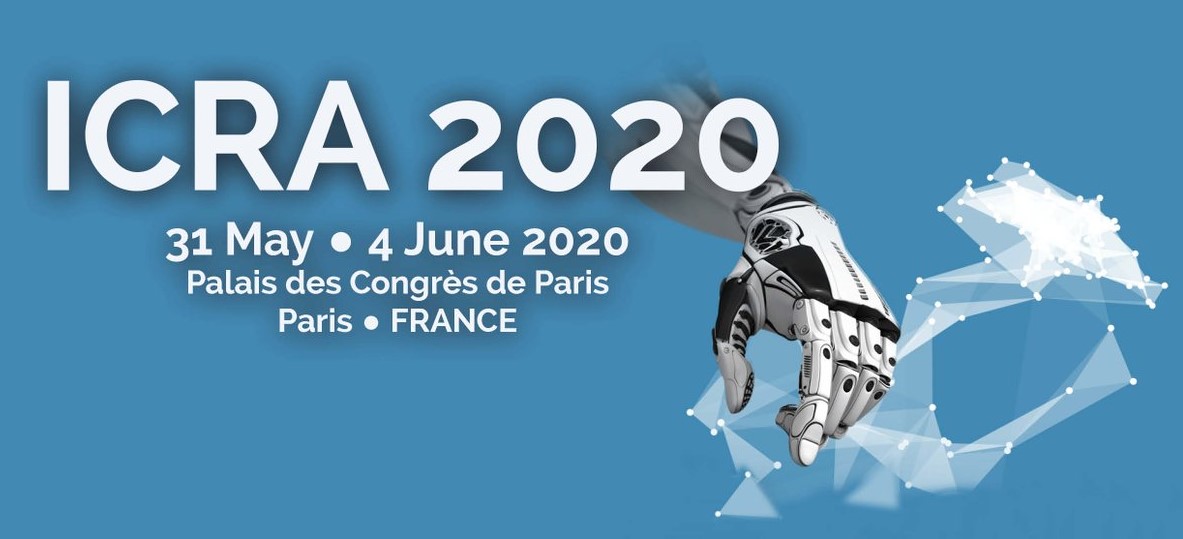Deep Learning in Production: Laptop set up and system design
A supernumerary robotic arm adds functionality for carrying out common tasks
INTERNATIONAL MANUFACTURING TECHNOLOGY SHOW CANCELLED FOR FIRST TIME SINCE WWII
5G and New Industrial Use Cases
Updated: All the #ICRA2020 plenary and keynote videos

ICRA 2020, one of the main international robotics conferences, is happening online this year due to COVID-19. That means there is loads of free content you can view from home. It’s a great way to see what’s happening in the field straight from those pushing the state of the art.
Plenaries and Keynotes are being broadcast from June 1 to 15 at 1PM UTC on IEEE.TV. We’ve embedded all the talks below, and will keep updating throughout the conference. Check out the online programme for more great content, including workshops and tutorials.
| Plenary Panel | Chair: Wolfram Burgard | Monday, June 1, 1PM UTC |
|
Covid-19: Ken Goldberg, UC Berkeley, Moderator |
Robin Murphy, Texas A&M, USA |
Gangtie Zheng, Tsinghua U, PRC |
| Plenaries | ||
| Lydia E. Kavraki | Planning in Robotics and Beyond | Tuesday June 2, 1PM UTC |
| Yann LeCun | Self-Supervised Learning & World Models | Wednesday June 3, 1PM UTC |
| Jean-Paul Laumond | Geometry of Robot Motion: from the Rolling Car to the Rolling Man | Thursday June 4, 1PM UTC |
| Keynotes | ||
| Allison Okamura | Haptics for Humans in a Physically Distanced World | Monday June 8, 1PM UTC |
| Kerstin Dautenhahn | Human-Centred Social Robotics: Autonomy, Trust and Interaction Challenges |
Tuesday June 9, 1PM UTC |
| Pieter Abbeel | Can Deep Reinforcement Learning from pixels be made as efficient as from state? |
Wednesday June 10, 1PM UTC |
| Jaeheung Park | Compliant Whole-body Control for Real-World Interactions | Thursday June 11, 1PM UTC |
| Cordelia Schmid | Automatic Video Understanding | Friday June 12, 1PM UTC |
| Cyrill Stachniss | Robots in the Fields: Directions Towards Sustainable Crop Production |
Monday June 15, 1PM UTC |
| Toby Walsh | How long before Killer Robots? | Tuesday June 16, 1PM UTC |
| Hajime Asama | Robot Technology for Super Resilience – Remote Technology for Response to Disasters, Accidents, and Pandemic | Wednesday June 17, 1PM UTC |